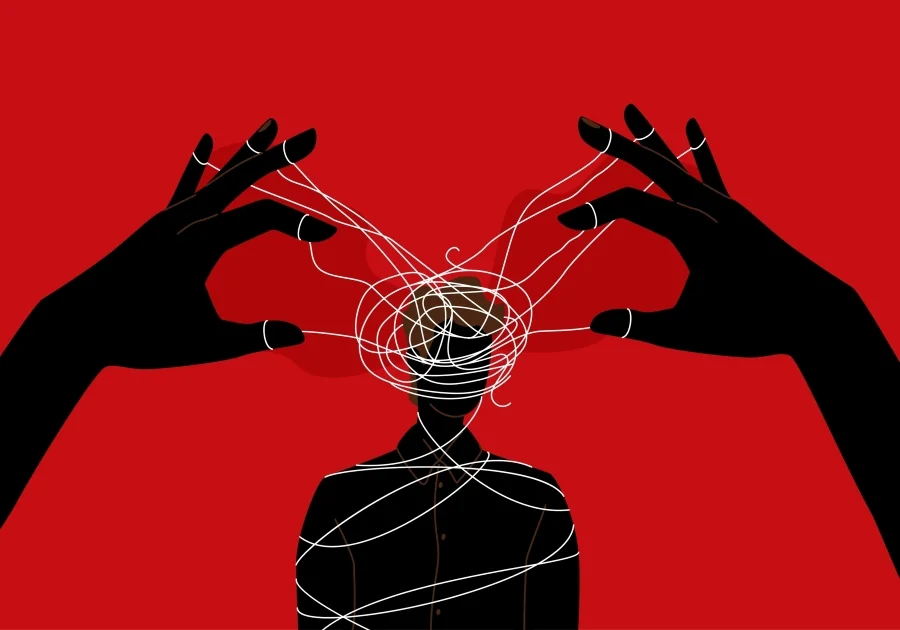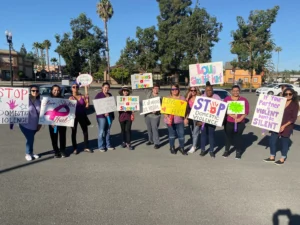Money is power. Whatever your feelings about it and its place in modern life, money is an undeniably important resource—a tool that can be used for good or for bad. Even as people use their money to fund crucial causes and change lives, abusers can use their victims’ money as a tool for exploitation and harm. This is financial abuse.
Tragically, it occurs in 99% of domestic violence cases according to the National Network to End Domestic Violence (NNEDV). Financial abuse, they report, is “often cited by victims of abuse as the main reason that they stayed with or returned to an abusive partner.”
Here’s an in-depth look at what financial abuse can encompass, what its effects are, and how victims can take back their financial power.
Financial Abuse Definition
Financial abuse refers to the illegal or unethical manipulation of an individual’s financial resources, assets, or property by a perpetrator. This type of abuse can take many forms and can have severe consequences for the victim. Financial abuse can happen to anyone, but it is more common among vulnerable populations, such as the elderly, individuals with disabilities, and those in abusive relationships.
One type of financial abuse is economic exploitation, which involves the use of an individual’s funds or property without their consent or for purposes other than their own benefit. This can include theft, fraud, forgery, and embezzlement.
Another type of financial abuse is financial coercion, where an abuser uses intimidation, threats, or manipulation to control an individual’s financial resources. This can include forcing someone to sign a document or transfer assets against their will, or coercing them to take out loans or make other financial transactions that are not in their best interest.
Financial abuse can also take the form of denying an individual access to their own financial resources, such as bank accounts, credit cards, or other assets. This can include restricting their access to money or preventing them from making their own financial decisions.
In some cases, financial abuse can be accompanied by other forms of abuse, such as physical or emotional abuse, which can further exacerbate the victim’s vulnerability. It is essential to recognize the signs of financial abuse and take steps to protect yourself and others from this type of exploitation.
Effects of Financial Abuse
The effects of financial abuse can be devastating for the victim, both in the short and long term. This type of abuse can leave individuals feeling powerless, helpless, and trapped, and can have significant emotional, physical, and financial consequences.
One of the most immediate effects of financial abuse is a loss of financial security. Victims may suddenly find themselves without access to their own funds, unable to pay bills or make important purchases. In the long term, victims may experience significant financial losses, both in terms of direct financial exploitation and through the damage caused by the abuser’s actions. For example, victims may be left with significant debt, poor credit scores, or damaged relationships with financial institutions or family members.
In addition to the financial impact, victims of financial abuse may also experience physical and psychological harm. This type of abuse can be accompanied by other forms of abuse, such as physical or emotional abuse, which can lead to injuries, trauma, and a sense of isolation from friends and family.
The effects of financial abuse can also extend to broader societal consequences and can undermine individuals’ trust in financial institutions. This can lead to economic harm, as people who have previously experienced financial abuse may be less likely to invest in the market or engage in financial activities.
Ultimately, the consequences of financial abuse can be far-reaching and long-lasting, and can have significant impacts for both the victim and broader society. It is essential to take steps to prevent financial abuse and support victims in recovering from the harm caused by this type of exploitation. This can include education, public awareness campaigns, and targeted support services for victims of financial abuse.
Recovering From Financial Abuse
Recovering from financial abuse can be a difficult and complex process, but there are steps that individuals can take to regain control of their finances and rebuild their lives.
One of the first steps for recovery is to seek out support and assistance. This can include seeking help from a financial advisor, a legal advocate, or a social worker who specializes in working with victims of abuse. These professionals can provide guidance, support, and resources to help individuals rebuild their finances and regain control of their lives.
Another key step in recovering from financial abuse is to take control of one’s finances. This may involve opening new bank accounts, canceling credit cards that have been compromised, and establishing new lines of credit. Victims may also need to rebuild their credit history by making on-time payments and avoiding high-interest loans or credit cards.
It is also important for victims of financial abuse to address any legal issues that may arise from the abuse. This may involve filing a police report, seeking a restraining order, or pursuing legal action against the perpetrator. Victims may also be eligible for restitution or other forms of compensation for the financial harm they have suffered.
Rebuilding trust and relationships is also an important part of recovering from financial abuse. Victims may need to reach out to family and friends for support, or seek out counseling to address any emotional or psychological trauma they may have experienced as a result of the abuse.
Finally, victims of financial abuse should take steps to protect themselves from future abuse. This may involve setting up safeguards to protect their finances, such as establishing separate bank accounts or sharing financial information with trusted individuals only. Victims may also benefit from education and training on financial literacy, budgeting, and debt management to help them rebuild their financial stability and independence.
Recovering from financial abuse can be a challenging process, but with the right support and resources, people can regain control of their lives and their finances, and move forward toward a brighter and more secure future.
At Crisis House, we are here during these stressful times to support families with our services and resources. We provide crisis intervention, transitional and permanent housing, and services for families and children fleeing domestic violence. We’re leaders in critical services in East County, San Diego, administering programs for individuals and families experiencing domestic violence and homelessness.
See our impact and help us reach those in need by donating or volunteering today! You can also sign up for our newsletter to stay in the loop as we work to connect families, children, and individuals to crucial resources. Together, we can stop the cycle of domestic violence, child abuse, and homelessness and empower people to renew their lives!







